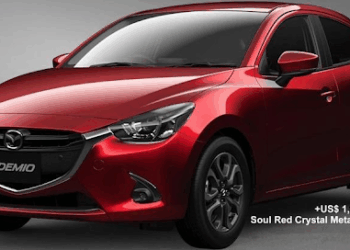In the dynamic landscape of Kenya’s automotive sector, Japan has established a significant dominance, accounting for 94.3 percent of the 62,495 used vehicles exported to Kenya in the 12 months leading up to June 2023. This statistical stronghold emphasizes the preference for Japanese car brands, highlighting their popularity in the Kenyan market’s commercial and private sectors.
Export Statistics: Japan Takes the Lead
During the mentioned period, Japan exported 58,972 units to Kenya, far surpassing other exporting nations. The United Kingdom and Thailand followed, contributing 1,921 and 1,061 units, respectively. Notably, UK imports primarily consist of European vehicle brands, while Thai imports are dominated by pickup trucks.
Japanese Car Brands and Local Presence
Beyond used imports, Japanese car brands like Toyota, Honda, Isuzu, Subaru, Mitsubishi, Mazda, and Nissan have a significant presence in Kenya through local franchise holders. These franchises provide warranties, parts, and services, enhancing the appeal of Japanese cars in the Kenyan market.
Market Share Insights
While specific import numbers per brand are not detailed in the data, previous records from 2018 indicate Toyota Motor Corporation held nearly 60 percent of all motor vehicle sales in Kenya, combining both used and new vehicles. Other major players included Nissan, Honda, and Isuzu.
Popular Japanese Models in Kenya
Toyota’s diverse lineup, including models like Probox, Corolla, Land Cruiser, Hiace, and Vitz, has garnered immense popularity. Probox, in particular, has experienced a surge in sales due to its versatility as both a people carrier and a cargo vehicle.
Key Buyers and Demand Drivers
Small businesses and households form Kenya’s primary consumer base for used cars. Japanese brands catering to these segments with practical and reliable models have gained widespread appeal. Furthermore, the demand for small-capacity cars used in taxi-hailing services has contributed significantly to the popularity of Japanese models, known for their global reliability.
Challenges and Influencing Factors in Kenya’s Car Industry
Over the past three years, Kenya’s car industry has faced disruptions caused by global shocks. The COVID-19 pandemic led to delivery delays, port and production plant shutdowns in source markets, particularly Japan, and a semiconductor shortage, a vital component in modern cars.
Forex Costs and Currency Depreciation
Foreign exchange (forex) costs have become a critical factor influencing car import numbers. The sharp depreciation of the Kenyan shilling against major currencies like the dollar, euro, and British pound has escalated costs for importers.
Tax Changes and Import Duties
The 2023 Finance Act implemented tax changes, increasing the duty on imported cars from 25 percent to 35 percent. This change and other taxes like excise duty and value-added tax (VAT) have intensified the cost burden on car importers, resulting in additional charges of up to Ksh300,000 ($2,085) per vehicle.
Looking Ahead: Navigating the Road Ahead
Despite Japan’s current dominance, challenges in tax adjustments, supply chain disruptions, and forex volatility pose significant hurdles for Kenya’s car industry. The sector will need to adapt and innovate to ensure sustained growth, maintaining a delicate balance between affordability and market dynamics.
Original Article: https://www.zawya.com/en/economy/africa/kenya-buys-94-of-used-vehicles-from-japan-tlcu3v64




